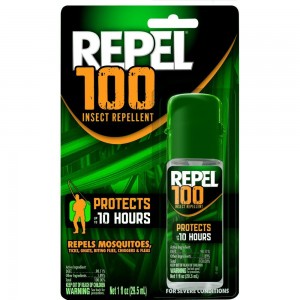DEET and Chemical Repellents
 Chemical repellents are widely regarded as the most effective way to ward off these nasty parasites.
Chemical repellents are widely regarded as the most effective way to ward off these nasty parasites.
The CDC publicly recommends repellents with the active ingredients: DEET, oil of lemon eucalyptus, picaridin, or IR 3535. While all of these are recognized as repellents, DEET is the standard that all others are tested against. Nothing has beaten DEET in testing so far.
While man avoid DEET, believing it to be harmful or toxic, extensive testing has shown no link between DEET and serious side effects. All things considered, avoiding DEET for a less effective mosquito repellent could have very serious downsides.
From Reader’s Digest:
“When products with DEET hit store shelves in 1957, there were early concerns about its safety. Some speculated it might be linked to neurological problems. While the long-term effects of DEET haven’t been studied, a 2014 study in the journal Parasties and Vectorsfound no evidence of negative side effects. Another classic study observed the effects of DEET on pregnant women past their first trimester: Some women used DEET products, while a control group did not. Six months after giving birth, the women’s babies showed no difference in neurological performance, weight, height, head, or arm size.”
